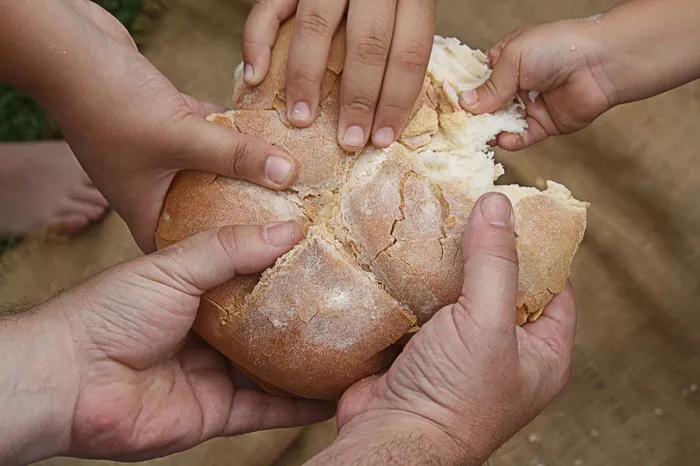French Baker is a renowned bakery brand known for its authentic French pastries, bread, and confectioneries. Founded on the principles of traditional French baking techniques, the brand has garnered a loyal customer base over the years. With a commitment to quality ingredients and craftsmanship, French Baker has expanded its presence globally, offering franchise opportunities to entrepreneurs looking to venture into the bakery business.
French Baker Franchise Initial Investment
Investing in a French Baker franchise offers individuals the chance to tap into a lucrative market with a proven business model. However, like any franchise opportunity, there are initial investments to consider. The initial investment for a French Baker franchise typically includes:
1. Franchise Fee: The franchise fee serves as the initial payment for the right to operate under the French Baker brand. This fee can vary depending on factors such as location and market demand but generally ranges from $30,000 to $50,000.
2. Equipment and Supplies: Setting up a bakery requires specialized equipment and supplies. This includes ovens, refrigeration units, display cases, and baking tools. The cost for equipment and supplies can range from $50,000 to $100,000 depending on the size and scale of the operation.
3. Real Estate and Leasehold Improvements: Securing a suitable location is crucial for the success of a bakery franchise. Costs associated with real estate and leasehold improvements vary greatly depending on factors such as location, size of the space, and local rental rates. On average, entrepreneurs should budget between $50,000 to $150,000 for real estate and leasehold improvements.
4. Initial Inventory: Stocking up on initial inventory is necessary to launch the bakery successfully. This includes ingredients, packaging materials, and finished goods. Depending on the size of the bakery and product offerings, initial inventory costs can range from $10,000 to $30,000.
5. Working Capital: It’s essential to have working capital to cover operational expenses during the initial phases of the business. This includes expenses such as payroll, utilities, and marketing.
Entrepreneurs should budget for at least three to six months’ worth of operating expenses, which can range from $50,000 to $100,000.
Overall, the total initial investment for a French Baker franchise typically ranges from $200,000 to $400,000, depending on various factors such as location, size, and market conditions.
French Baker Franchise Ongoing Expenses
In addition to the initial investment, franchisees must also consider ongoing expenses associated with running a French Baker franchise. These ongoing expenses include:
1. Royalty Fees: Franchisees are typically required to pay ongoing royalty fees to the franchisor. These fees are usually calculated as a percentage of gross sales and can range from 4% to 8% of monthly revenue.
2. Marketing Fees: Franchisees may be required to contribute to a marketing fund to support national or regional marketing efforts. Marketing fees are typically calculated as a percentage of gross sales and can range from 1% to 3%.
3. Rent and Utilities: Monthly rent and utilities are recurring expenses that must be factored into the operating budget. The cost of rent and utilities can vary depending on factors such as location, size of the space, and local utility rates.
4. Labor Costs: Labor costs include wages for bakery staff, payroll taxes, and benefits. The number of employees and their respective wages will depend on the size and scale of the bakery operation.
Inventory and Supplies: Ongoing inventory and supply costs are necessary to keep the bakery stocked with fresh ingredients and packaging materials.
5. Maintenance and Repairs: Regular maintenance and occasional repairs for equipment and facilities are essential to ensure smooth operations.
Overall, ongoing expenses for a French Baker franchise can range from 60% to 80% of gross sales, depending on various factors such as location, sales volume, and operational efficiency.
French Baker Franchise Financial Projections and ROI
Before investing in a French Baker franchise, potential franchisees should conduct thorough financial projections to assess the potential return on investment (ROI). Financial projections should take into account factors such as initial investment, ongoing expenses, sales forecasts, and market conditions.
1. Sales Forecasts: Franchisees should develop realistic sales forecasts based on factors such as market demand, competition, and local demographics. Sales forecasts can vary depending on factors such as location, marketing efforts, and product offerings.
2. Expense Projections: Franchisees should estimate ongoing expenses based on historical data, industry benchmarks, and input from the franchisor. It’s essential to account for all expenses, including royalties, rent, utilities, labor, inventory, and marketing.
3. Profit Margins: Franchisees should analyze profit margins to understand the potential profitability of the business. Profit margins can vary depending on factors such as pricing strategy, cost of goods sold, and operational efficiency.
4. Return on Investment (ROI): ROI measures the profitability of an investment relative to its cost. Franchisees should calculate the projected ROI based on financial projections and compare it to their investment criteria.
While financial projections provide valuable insights into the potential financial performance of a French Baker franchise, it’s essential to remember that actual results may vary. Market conditions, competition, and other external factors can impact the success of the business.
Conclusion
In conclusion, investing in a French Baker franchise offers entrepreneurs the opportunity to enter the lucrative bakery market with a well-established brand and proven business model. However, prospective franchisees must carefully consider the initial investment, ongoing expenses, and financial projections to make an informed decision and maximize their ROI.

